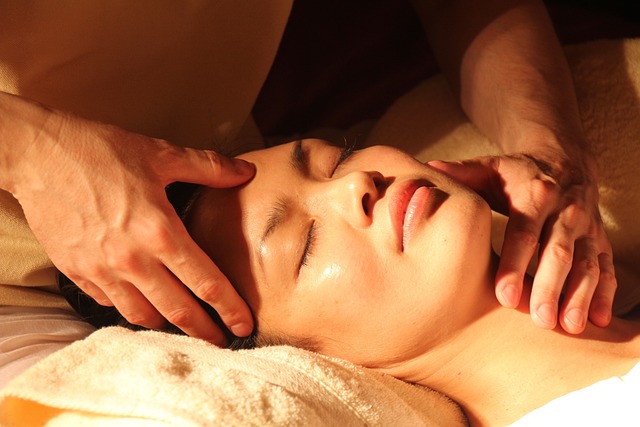In Georgia, massage therapists require specific licensing from the Georgia Board of Massage Therapy (GBMT), and clients are protected by strict regulations against massage abuse. Verifying therapist credentials with the GBMT is crucial for client safety. Compare Georgia’s laws to other states’ varying practices, such as lack of specific licenses for specialized therapies like prenatal or sports massage. Understand that state laws, along with a massage abuse lawyer in Georgia, guide clients on rights and justice when facing misconduct or abuse during therapy sessions. These legal professionals specialize in navigating complex regulations and supporting victims through the legal process to maintain industry integrity.
“Unwinding the Complexities: Comparing Georgia’s Massage Therapy Regulations is a crucial step in understanding the state’s commitment to client safety. This article offers an in-depth look at Georgia’s massage therapy licensing requirements, positioning them alongside other states’ regulations. We explore protections for clients, address concerns around massage abuse, and highlight the significance of legal expertise, especially with a massage abuse lawyer in Georgia, in ensuring safe therapeutic practices.”
Massage Therapy Licensing Requirements in Georgia: A Comprehensive Overview

In Georgia, massage therapists must meet specific licensing requirements set forth by the Georgia Board of Massage Therapy (GBMT). To obtain a license, individuals typically need to complete an approved massage therapy training program, pass a written examination, and a practical examination. The GBMT offers different types of licenses based on the therapist’s level of education and expertise, including the Licensed Massage Therapist (LMT) and the Advanced Practice Registered Massage Therapist (APRMT) designations.
For those seeking to protect against potential massage abuse, ensuring the therapist is properly licensed is a crucial first step. A qualified massage therapist in Georgia should possess current, valid credentials, and their license should be in good standing with the GBMT. Additionally, many therapists maintain professional insurance to safeguard against accidents or disputes that may arise during a session. Consulting with a massage abuse lawyer Georgia if any concerns or issues regarding therapy services arise can provide guidance on legal rights and options available.
Other States’ Regulations: A Comparative Study

In the realm of wellness and therapy, regulations play a crucial role in safeguarding clients from potential massage abuse. When comparing Georgia’s massage therapy laws to those of other states, several key differences emerge. While Georgia has established guidelines for licensing and practicing massage therapy, other states often boast more stringent requirements and broader scopes of practice. For instance, some western states allow advanced practices like prenatal massage or sports therapy without specific licenses, while these services in Georgia may require additional certifications.
This comparative study highlights the varying standards across the nation. States with more comprehensive regulations typically demand extensive training hours, rigorous examinations, and ongoing education for practitioners. Conversely, less stringent laws might only mandate basic training and periodic renewals. Such disparities can significantly impact clients’ access to specialized services and their overall therapy experience. For those seeking a massage abuse lawyer in Georgia or any state, understanding these regulatory differences is essential in navigating legal options and ensuring fair practices.
Protections for Clients: How Do Georgias Laws Stack Up?

In Georgia, clients receiving massage therapy are protected by state laws designed to prevent massage abuse and ensure professional conduct. The Georgia Board of Massage Therapy (GBMT) is responsible for establishing and enforcing regulations that safeguard clients. These rules include strict requirements for licensing, training, and ethics for massage therapists. For instance, therapists must complete a minimum number of hours of training and pass a comprehensive exam to obtain licensure.
Moreover, Georgia law prohibits certain practices that could lead to massage abuse, such as inappropriate physical contact or sexual harassment. The GBMT also enforces standards for record-keeping and consent, ensuring clients’ privacy and autonomy. In case of any misconduct, clients have the right to file complaints with the GBMT, which can lead to disciplinary actions against offending therapists. This robust regulatory framework serves as a crucial defense against potential massage abuse, providing Georgians with peace of mind when seeking therapeutic massage services.
Addressing Concerns: Combating Massage Abuse and Ensuring Safety

In Georgia, like many states, ensuring the safety and integrity of the massage therapy industry is paramount. One significant concern is combating massage abuse, which includes non-consensual or inappropriate conduct by massage therapists. To address this issue, Georgia has implemented strict regulations aimed at protecting clients. These include mandatory training on consent, ethics, and boundaries for all massage professionals. Additionally, the state requires thorough background checks and regular renewals of licenses to maintain a reliable system.
For those who have experienced massage abuse, seeking legal counsel from a massage abuse lawyer in Georgia can be crucial. Such attorneys specialize in helping victims navigate the complexities of reporting and pursuing legal action against negligent or abusive therapists. They ensure that clients’ rights are protected and that justice is served, fostering a safer environment for all individuals receiving massage services within the state.
The Role of Legal Expertise: Massage Abuse Lawyer Georgia

In the context of comparing Georgia’s massage therapy regulations, understanding the role of legal expertise is paramount, especially when considering issues like massage abuse. A Massage Abuse Lawyer Georgia can play a pivotal role in navigating complex laws and regulations to protect clients from unethical practices. These professionals are equipped with in-depth knowledge of state laws, which vary significantly across different jurisdictions, enabling them to guide both victims and therapists on their rights and responsibilities.
Moreover, these lawyers specialize in handling cases involving massage therapy misconduct, ensuring that clients receive fair compensation for any harm suffered. By leveraging their expertise, they help maintain the integrity of the massage industry while promoting a safe environment for all involved. This is particularly crucial given the sensitive nature of the services provided by massage therapists and the potential for abuse or malpractice.






